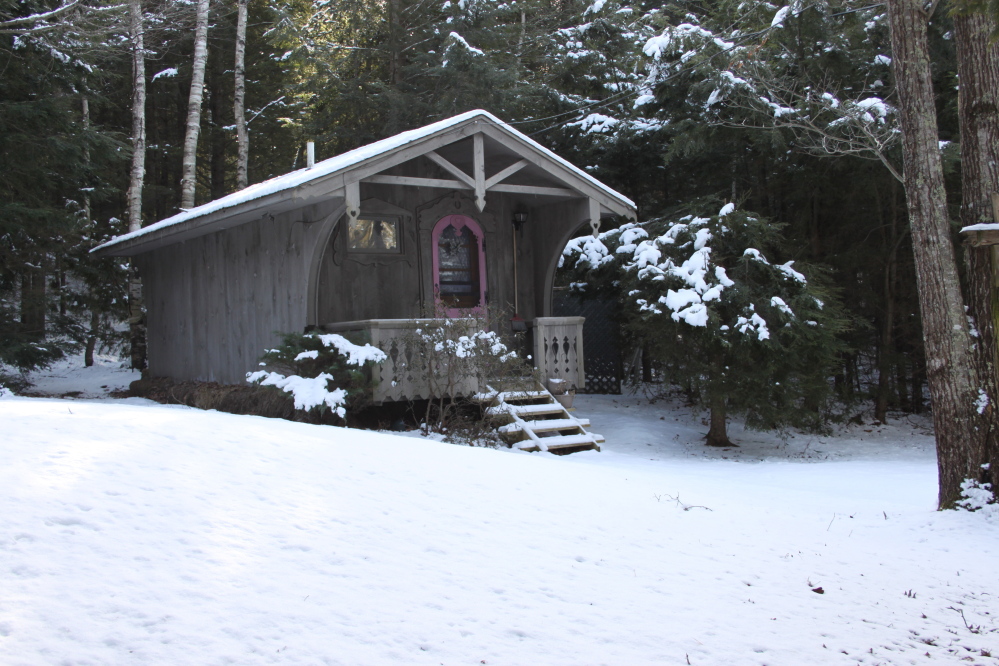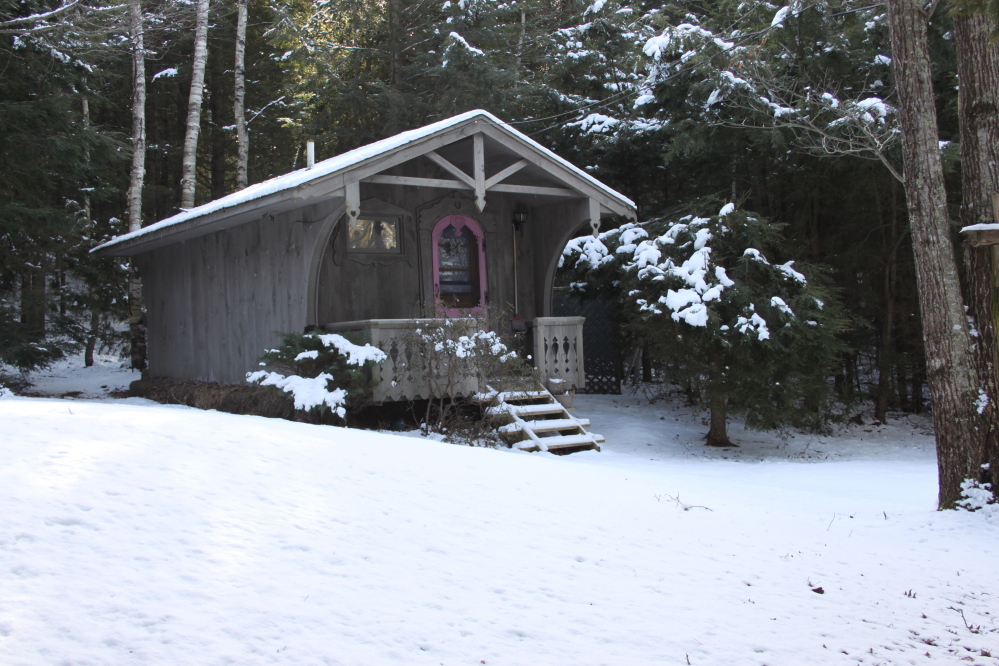BATH — The city of Bath has imposed a $31,200 fine against an elderly couple for putting two accessory buildings on city property at least 26 years ago, and never removing them.
The penalty for code violations – including trespassing on city property for more than two decades – amounts to $100 for each month since the trespass was first acknowledged in city records. The fine could have been as much as $100 a day for each violation, but a fine of more than $900,000 was deemed too high.
One issue may complicate the City Council’s decision to fine the couple, however: Bath has known about the buildings for 26 years and taxed the two buildings for nearly 20 years.
The couple, Mardouni and Esther Sharrigan, say they simply want to buy the city land to settle the dispute. Esther Sharrigan said the couple has been trying to acquire the property for years and has been stymied.
The Feb. 12 vote in favor of a fine came as a surprise, said John Bannon, their attorney.
“Given that there was no prior notice that the council was even going to consider penalties at that meeting, I’m still trying to develop a response,” Bannon said.
The land is part of a city-owned tract in an area known as Butler Head on the shore of Merrymeeting Bay. The city plans to give the tract to the Kennebec Estuary Land Trust.
The Sharrigans, who live in Wiscasset, own a cottage on Mallard Road on the eastern shore of the bay. The two buildings in question are a bath house and a bunk house, which are near the cottage but built at least partly on the city-owned conservation land.
The issue was first raised at the Jan. 8 council meeting when Bannon, of Murray Plumb & Murray in Portland, brought the couple’s proposal to the council. The couple, who are 86 and 76 years old, sought to purchase less than a half-acre of land in Butler Head, which he said constitutes just 0.3 percent of the 141-acre preserve.
The city has known about the buildings since at least 1989, according to meeting minutes discovered by Bannon. In addition, the tax assessments of the property from the 1985 re-evaluation include a penciled-in entry in 1987 that hints at the presence of secondary buildings.
According to tax assessment records, the city has been including the value of the two illegal buildings on tax bills for the Sharrigans’ property since at least 1995. Based on the tax rate from each year since, the Sharrigans have paid $10,266 in additional taxes on the added value of the buildings.
Along with voting to impose the fine, Bath’s city councilors decided this month to have the land appraised for a possible sale. However, the $31,200 fine was assessed without any guarantee that the Sharrigans will be able to acquire the property their buildings sit on.
Three councilors – Ward 6 Councilor David Sinclair, Ward 1 Councilor Meadow Merrill and Ward 2 Councilor Sean Paulhus – have all repeatedly voted against any sale of the property.
Sinclair was the only councilor who voted against imposing the fine, but that was because he thought it wasn’t steep enough.
“I’m going to vote against the motion, not because I think we should not assess a penalty, but rather because I think the penalty proposed is far too low for the egregious and willful violations over more than a quarter century,” said Sinclair.
Esther Sharrigan, who appeared at the Feb. 12 council meeting to address the council, said she approached the city about purchasing the land in the 1990s, not long after a council member purchased city land behind his own cottage in the same Butler Head area.
“It was two months after that I approached the town verbally, and asked if we couldn’t buy some land,” she said. “Well, I was told, ‘No, we won’t sell you any land because we will be setting a precedent.’ ”
Esther Sharrigan also said the city’s decision not to sell them land at the time seemed to be influenced by the fact that the couple are from Massachusetts.
“Somebody else just bought some land back in December, there wasn’t this going on then,” said Sharrigan.
Bannon said a meeting has been scheduled for Feb. 24 between the Sharrigans and the city manager, city solicitor and the chair of the City Council. What might happen afterward isn’t clear.
A real estate attorney not involved with the case said the dispute is far from cut-and-dried if it goes to court.
“It makes for an interesting stew of legal theory,” said Ronald Ward, a real estate attorney with Drummond Woodsum in Portland.
In some cases, a property owner could invoke adverse possession – also called “squatter’s rights” – because of the length of time that the Sharrigans have been using and paying taxes on the property with the city’s full knowledge, Ward said. However, adverse possession doesn’t apply to property that is owned by a city so the dispute falls back “into less certain legal rights and theories,” he said.
According to Ward, it is the Sharrigans’ fault that the buildings are on city property – especially in the case of the bath house, which is entirely on city property. The two buildings were built without the required permits, which would have brought up the property placement and possibly avoided the entire problem.
But the fact that the city has known about – and taxed – the buildings for such a long time also presents an issue, he said. “It was OK for a long time,” he said.
This also raises the question of whether the Sharrigans are entitled to a rebate of $10,266 for taxes, Ward said.
Chris Chase can be contacted at:
cchase@coastaljournal.com
Twitter: cchaseCJ
Send questions/comments to the editors.




Success. Please wait for the page to reload. If the page does not reload within 5 seconds, please refresh the page.
Enter your email and password to access comments.
Hi, to comment on stories you must . This profile is in addition to your subscription and website login.
Already have a commenting profile? .
Invalid username/password.
Please check your email to confirm and complete your registration.
Only subscribers are eligible to post comments. Please subscribe or login first for digital access. Here’s why.
Use the form below to reset your password. When you've submitted your account email, we will send an email with a reset code.